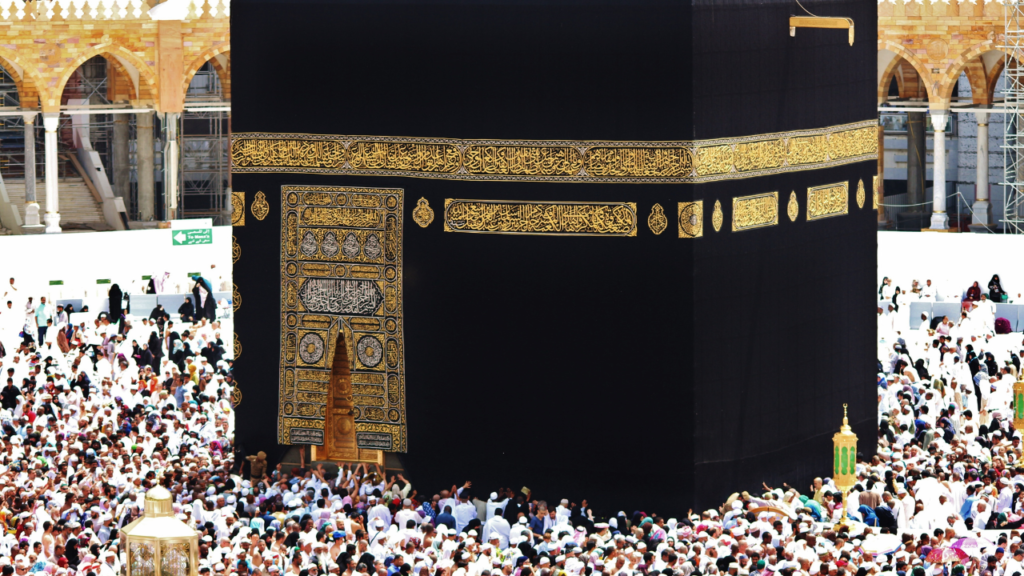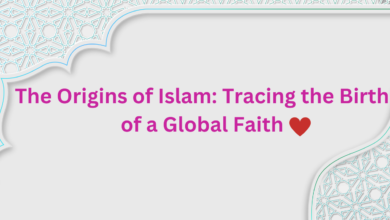
Vrtues of Islam

Introduction
In the vast tapestry of world religions, Islam stands out as a beacon of enlightenment, offering a unique perspective on life and spirituality. As we embark on this journey, let’s unravel the virtues that make Islam a source of guidance, compassion, and wisdom.
Understanding the Pillars of Islam
Shahada – The Declaration of Faith
The foundational pillar of Islam, Shahada, is a powerful declaration that unites Muslims globally. It goes beyond a mere statement; it symbolizes a profound commitment to the oneness of God and the interconnectedness of the Muslim community.
Salah – The Ritual Prayer
In the rhythm of daily life, Salah acts as a spiritual anchor. Beyond its ritualistic nature, Salah fosters a direct connection with the divine, offering moments of reflection and gratitude.
Zakat – Almsgiving for Social Welfare
The practice of Zakat goes hand in hand with the principles of social justice in Islam. By giving to those in need, Muslims contribute to the well-being of the community while nurturing their own spirituality.
Sawm – Fasting during Ramadan
Ramadan, a sacred month of fasting, is more than abstaining from food and drink. It’s a time for self-discipline, reflection, and communal celebration, reinforcing the bonds of empathy and unity.
Hajj – The Pilgrimage to Mecca
The pilgrimage to Mecca, or Hajj, is a transformative journey that Muslims aspire to undertake at least once in their lifetime. It symbolizes equality and unity, as millions gather in a demonstration of shared faith.
Also Check
- Mufti Nasir Ul Islam
- Balenciaga Meaning In Islam?
- How To Die Peacefully In Islam?
- Who is The Founder of Islam?
Virtues of Islam for Beginners
Tawhid – Oneness of God
For beginners, understanding Tawhid might seem complex, but at its core, it’s the belief in the oneness of God. This concept shapes a Muslim’s worldview, emphasizing unity in all aspects of life.
Compassion and Mercy
Islam places a profound emphasis on compassion and mercy. Beginners can embody these virtues through simple acts of kindness, fostering a culture of empathy and understanding.
Justice in Islam
The concept of justice in Islam goes beyond legality; it encompasses fairness and equality in all aspects of life. It’s a call for individuals to balance justice with mercy, creating harmonious societies.
Wisdom in Decision-Making
Drawing wisdom from the Quran, beginners can navigate life’s challenges with a thoughtful mindset. Islam encourages believers to seek knowledge and apply it wisely in their decision-making.
Embracing Diversity within Islam
The Unity in Diversity
Islam celebrates diversity within its global community. Understanding and appreciating cultural differences strengthen the fabric of Islam, showcasing the richness that diversity brings.
The Role of Women in Islam
Contrary to stereotypes, Islam empowers women. Beginners can explore the diverse roles women play within the Islamic framework, dispelling misconceptions and fostering equality.
Islam and Interfaith Harmony
In a world of diverse faiths, Islam promotes interfaith harmony. Recognizing commonalities and building bridges with people of other religions contribute to a more peaceful coexistence.
Nurturing a Peaceful Mindset
Inner Peace through Submission
Islam offers a unique path to inner peace through submission to the divine will. Beginners can explore practices such as meditation and mindfulness to cultivate tranquility.
Overcoming Misconceptions
Addressing misconceptions is vital for a clear understanding of Islam. By engaging in open dialogue, beginners can contribute to dispelling stereotypes and fostering a more inclusive society.
Conclusion
In conclusion, the virtues of Islam are a tapestry woven with threads of faith, compassion, and wisdom. This journey invites individuals to explore a path of enlightenment, fostering unity, understanding, and peace.

(FAQs) about Virtues of Islam:
Are the virtues discussed exclusive to Muslims?
No, while rooted in Islamic teachings, these virtues are universal and can be embraced by individuals of any faith or background.
How can one incorporate Islamic virtues into daily life?
Embrace small, intentional acts of kindness, justice, and gratitude in your daily interactions to embody Islamic virtues.
What role does forgiveness play in Islamic ethics?
Forgiveness is highly valued in Islam, promoting healing and reconciliation. It is seen as a virtue that leads to personal and societal harmony.
How does Islam promote environmental stewardship?
Islam teaches that humans are stewards of the Earth, encouraging responsible resource use, waste reduction, and a mindful approach to environmental sustainability.
Where can I learn more about the virtues of Islam?
Seek guidance from reputable Islamic scholars, attend lectures, and engage with local Muslim communities to deepen your understanding of Islamic virtues.





